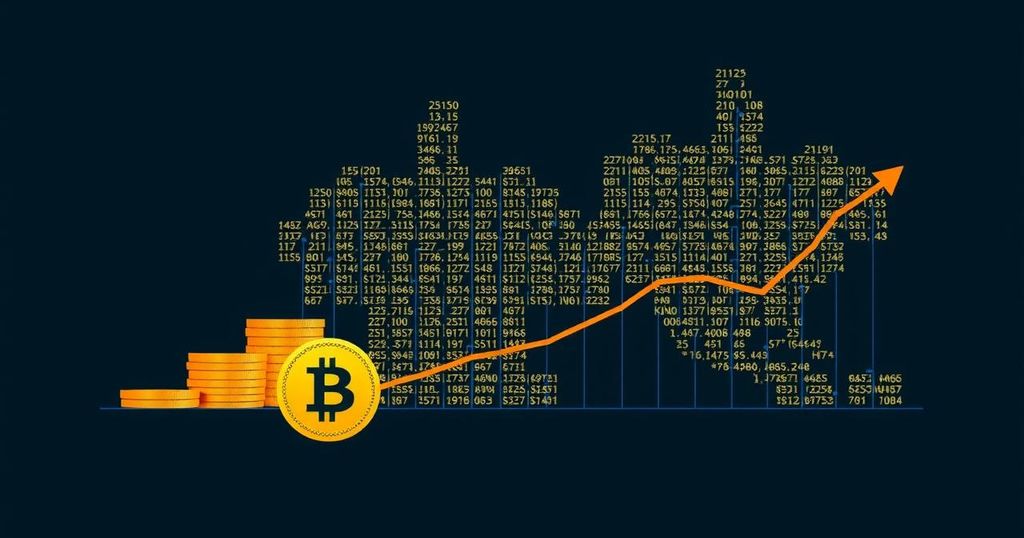Crypto Investments Surge Amidst Anticipated Fed Rate Cuts: Implications for Bitcoin
In recent developments, the cryptocurrency market has witnessed notable inflows attributed to the anticipated interest rate cuts by the Federal Reserve, raising significant inquiry about the future trajectory of Bitcoin (BTC). With Bitcoin Exchange-Traded Funds (ETFs) attracting substantial investments, particularly amid shifting economic signals, the implications for BTC and broader risk assets are profound.
According to Farside Investors, inflows into Bitcoin ETFs reached an impressive total of $202.6 million as of August 26. This trend epitomizes a burgeoning institutional appetite for Bitcoin, as exemplified by BlackRock’s decision to bolster its holdings in Bitcoin, indicative of heightened interest from institutional investors in a fluctuating economic landscape.
Despite the favorable currents in ETF investments, Bitcoin itself has encountered challenges, struggling to breach the $65,000 mark, currently trading at approximately $62,898 after experiencing a 1.11% dip over the last 24 hours, as reported by CoinMarketCap. This disparity between ETF inflows and Bitcoin’s market performance underscores a broader uncertainty within the investment community regarding the correlation between central bank interest rate maneuvers and the valuation of risk assets such as cryptocurrencies and equities.
A recent publication by CoinShares on August 26 revealed an increase in digital asset investment products, which reported $533 million in inflows—the most substantial influx observed in a five-week period. The resurgence in Bitcoin ETF activity is closely tied to recent remarks made by Federal Reserve Chair Jerome Powell during the Jackson Hole Symposium, where he alluded to potential initial interest rate reductions in September, thereby rejuvenating investor interest in riskier assets.
Despite a modest decline in trading volumes relative to prior weeks, trading activities remained consistent, with weekly figures reaching $9 billion. As outlined in the CoinShares report, Bitcoin was a focal point of this investment surge, with $543 million in inflows largely attributed to Powell’s dovish comments on August 23, revealing Bitcoin’s sensitivity to interest rate fluctuations.
Additionally, the report noted significant outflows from Ethereum (ETH), particularly from the Grayscale Ethereum Trust, which recorded redemptions amounting to $118 million, contributing to an overall $2.5 billion in outflows observed over the past month.
Market analysts are anticipating a notable decrease in Federal Reserve interest rates from the current 5.33% to approximately 3.33% within the next 18 months. Such a reduction in rates is expected to alleviate borrowing costs for consumers and businesses alike, encouraging liquidity and investment opportunities. This macroeconomic environment is likely to facilitate an upsurge in digital asset valuations, propelled by a broader capital infusion into the market.
Institutions have begun to respond proactively, with BlackRock recently disclosing an update to its Strategic Global Bond Fund portfolio, indicating an increase in its holdings of iShares Bitcoin Trust shares—from 12,000 shares in May to 16,000 shares as of June 30. This strategic adjustment reflects a growing commitment to Bitcoin investment and signifies anticipated future growth in asset values contingent upon forthcoming Fed policy decisions.
In conclusion, while the cryptocurrency market is experiencing significant inflows indicative of institutional interest, Bitcoin’s current trading challenges present a complex narrative. The unfolding effects of the Federal Reserve’s potential interest rate cuts stand to significantly influence not only asset prices but also the risk landscape for digital currencies. As events develop, the ramifications for Bitcoin and similar assets will warrant close scrutiny.








Post Comment